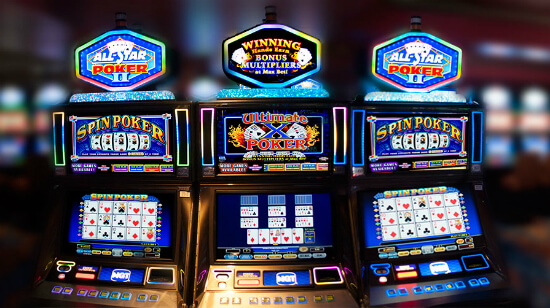Ever since there have been men and women (that’s quite a long time now), there have been perceived differences between them. Certainly, some differences remain — men and women have different physical appearances, health needs and so on — however research has proven that some ‘differences’ are more a matter of perception than reality. After all, until quite recently women were not thought capable of pursuing higher education for example. There was a long battle to secure the right to vote and the right to own property.
At the end of the day, it is data we should rely on to determine which of the gender-based assumptions are true and which are just assumptions. Take online gambling, for example. It is a common preconception that women do not gamble as much as men, at least in land-based casinos. Is it safe to assume the same happens in the virtual realm?
Equality in gambling
It turns out that that assumption could not be further from the truth. The State of New Jersey’s Division of Gaming Enforcement recently published data that shows that women make up more then half of the top 10% of the most active players at online casinos — the ratio was 53.39% to 46.61%.
There are some other interesting stats too. 40% of online gamblers are female. The male gambler’s average age is 38, while the average female gambler is 41. For both sexes, the biggest proportion of players fall within the 25-34 age range, followed by the 35-44 range.
Different games for different brains
There are of course fundamental differences in human anatomy when it comes to male versus female. However, when it comes to our brains, scientists have concluded that education, experience and culture have more of an impact on behavior than gender.
Psychologists on the other hand have identified a difference in the reason why people gamble. Women are more likely to play as a form of relaxation or entertainment. Men often take a more aggressive stance, playing to dominate their opponents and establish self-worth.
Keeping this in mind, it is easy to see why, as the data shows, men are more drawn to skill-based strategy games than women, who prefer more luck-based games like slots and bingo. The former are much more conducive to showing off prowess while the latter are a less stressful way to play.
The draw of online casinos
There are plenty of reasons people, women in particular, would prefer an online casino rather than a land-based one. For starters, access is much more straightforward — no need to travel anywhere or even get dressed up to play when you can just switch on your computer or mobile device.
Another reason is that, unlike online casinos, brick-and-mortar casinos are often considered less-than-welcoming towards female players. Whether there is any truth to that assumption is another matter but for the most part, land-based casinos can be a little too overwhelming and competitive for the novice player, who might feel intimidated by an atmosphere dominated by experienced players.
Still, these reasons hold equally well for male and female online players. Indeed, part of the draw of an online casino is that your gender does not really matter — generally, the only reason casinos ask for that detail is to better target their marketing. In this way, online casinos are some of the most non-judgmental entities out there, making online gaming all the more appealing to female players.
In today’s world, gender equality is (luckily) making great strides. Discrimination is slowly becoming a thing of the past, a practice that is more likely to lose you customers than gain them. In the world of online casinos, your gender matters even less as players are treated equally and with great respect. The growing interest in the sector by female players is testament to how welcoming these sorts of sites are.

